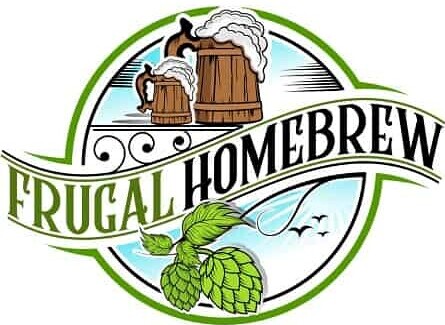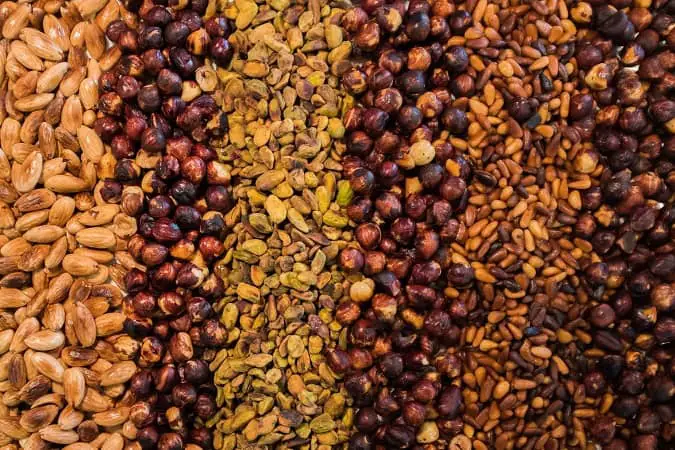
Probably one of my favorite beers of all time is actually made with nuts. That would be a peanut butter stout. But, I didn’t like how sweet it was and the lactose was troublesome. So I set out to learn how to brew with nuts.
Brewing Beer with nuts is difficult due to the fatty oils present. These oils reduce head retention and spoil your beer. You will need to extract and reduce these oils before adding to the brew. Do this by roasting and dabbing with paper towels. Nuts can be added to the mash, boil or secondary.
It became imperative that I learned to brew with nuts my way, how I wanted, and if you follow along below I will teach you the tips and tricks that you need to easily master brewing with various types of nuts.
When I first set out to find the answer to brewing beer with various types of nuts, I ran into a problem. There was really nothing online, aside from forums filled with jokes, and that just wasn’t helpful.
So I wanted to put together this article for you that will once and for all debunk and expose the mystery of brewing with nuts.
What Nuts Can Be Added.
Pretty much any type of nut that you desire can be added to beer. Some of them have properties that make them more difficult to brew with. Essentially its a sliding scale according to oiliness.
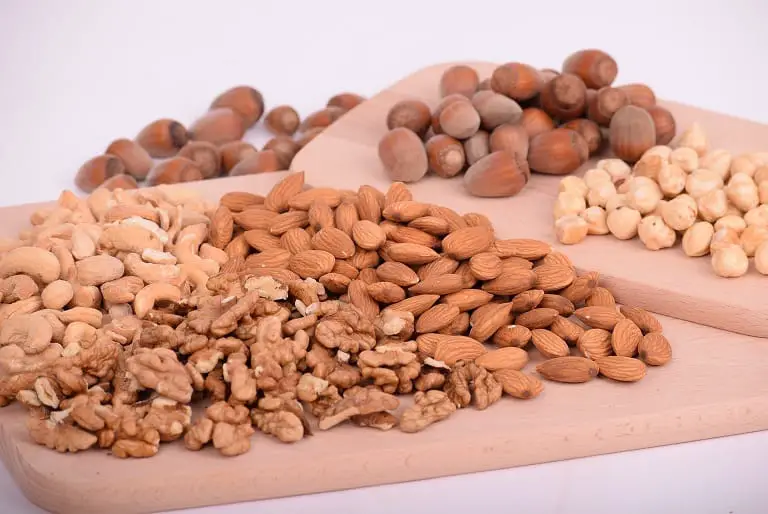
Below are common nuts frequently added to beer.
- Pecans
- Pistachios
- Almonds
- Hazelnuts
- Chestnuts
- Macadamia Nuts
- Coconuts
- Peanuts
- Walnuts
- Pine Nuts
The most common type of nut added to beer is peanuts, followed by Pecans most likely, although I imagine Coconuts are also very popular.
Nut additions to beer range in popularity according to the region they are brewed and if the nuts are common. For example Hawaii is famous for its Macadamia Nuts and likely why the Hawaiian breweries enjoy adding it to their beers.
The Process of Brewing with Nuts
Brewing with nuts can be a bit more complicated than one might think. You can’t simply add whole nuts to a beer and call it a day.
Neither can you grind up the nuts and just toss it into your brew. And I know what your thinking, why not? It works with everything else.
Beware of Fatty Oils
The problem lies in the nut oils and what they do to the beer. For one, you will be left with nothing but a thick viscous un-carbonated liquid. By this I mean the head retention is simply terrible.
And while some people seem to enjoy that kind of engine oil beer, I’m not too much of a fan. Not to mention the oils if left unchecked can turn a beer rancid fairly quickly.
So this leaves us with a few options on how to infuse nut flavor into our beer.
- Buy an extract recipe kit for a nut beer clone.
- Brew All-Grain using Nut Powders or flour.
- Use whole roasted nuts and reduce oils.
Buying a Nut Style Extract Recipe Kit
Probably the easiest way to brew a beer and not have to think to much about it is just to go to your favorite online brewing store and buy a recipe clone.
Maybe you like a nut brown, you could search that and brew it according to the directions.
The only problem with these kits, is they are likely relying on nut flavors from roasted barley and not truly adding nuts to the beer.
You often see people tasting beer or describing it to have a nutty flavor, this often comes from roasted malts and not actual nut additions. This is likely what you will get from most recipe kits.
Nut Powders and Flour
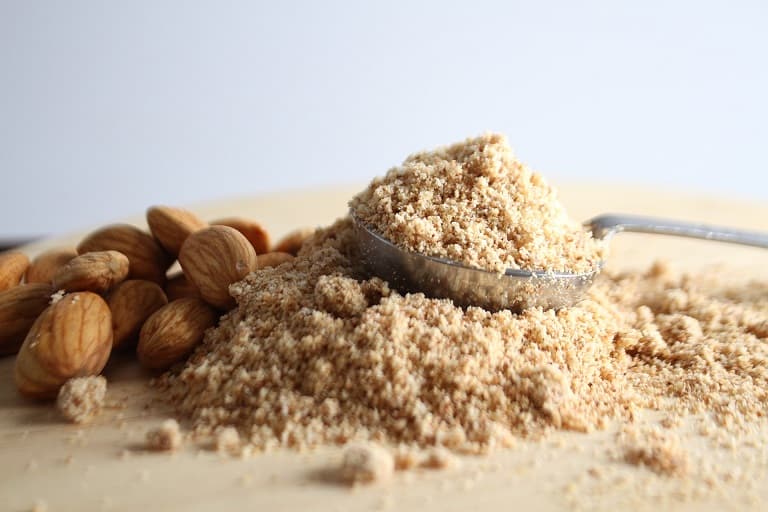
This is probably the most common way of adding nut flavor to beer. It may also be the most efficient.
Its common for people to use PB2 powdered peanut butter (Amazon Link) to brew peanut butter milk stouts with. This can be added at any stage of the brewing process, but probably works best at the end of the boil.
Almond flour is also a popular way of adding nut flavor to a beer, but can be said about any type of nut nowadays. Below is a list of different nuts that come in powdered form.
- Almond flour.
- Coconut flour.
- Pecan flour.
- Walnut flour.
- Cashew flour.
Various Nut Flours (Amazon Link)
Basically any type of nut that you want to add to your beer can already be found in flour form.
Nut Milks
I did a bit of research about adding various nut milks into beer, the bottom line is don’t do it. It doesn’t really work because of the dilution from added water.
Brew Using Whole Nuts
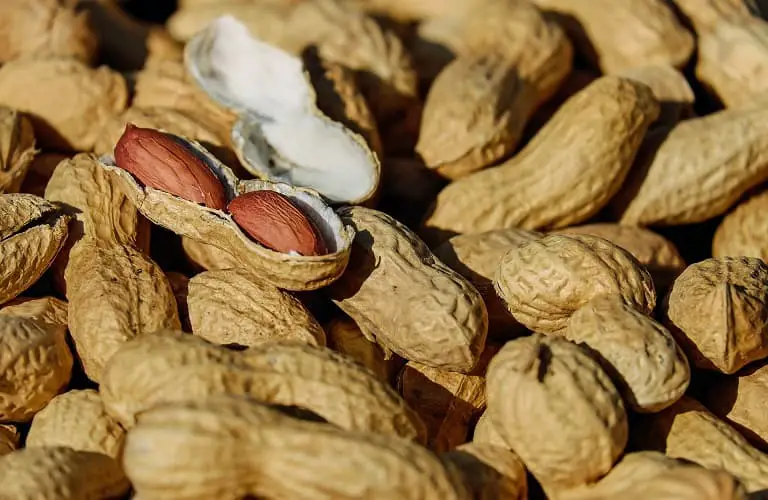
Now I know what your thinking, you didn’t come here to learn about brewing with powders and extracts.
You wan’t to know how to use whole nuts!
Well its a rough business but it can be done. Follow these steps to prepare your nuts.
- According to a 5 gallon recipe you will need between 5-15 ounces. (source)
- Roast the nuts in the oven 350F at 15 minutes will suffice.
- Make sure the nuts are not burnt but roasted and dried out a bit.
- We need to reduce the oils so make sure to dab thoroughly with a paper towel.
- Use a rolling pin to crush the nuts, coarsely ground is fine.
- Toss into the mash.
Bitterness from the Boil
If you don’t brew all grain you can probably add it to the boil and be fine. There are a few things you need to be wary of.
- Adding the nuts to the boil could extract bitter flavors.
- Nuts in the boil will contribute to unnecessary trub.
Much like the hops the more oils in the nuts the more bitter flavors that may be extracted. This is why adding the nut flavor to secondary may create a less bitter and sweeter beer.
Retain Flavor Alongside Aroma
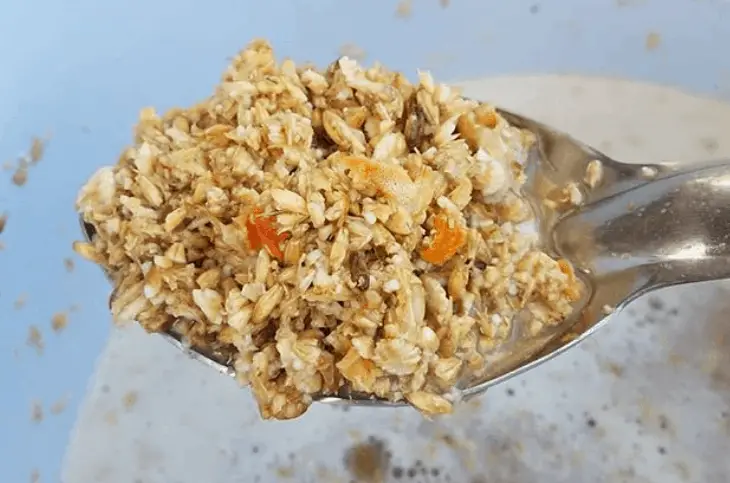
I find adding roasted ingredients to the mash really contributes to the overall aroma of the beer, but can do next to nothing for the actual flavor.
This is likely because the yeast tends to ferment out flavors that you actually want. So its best to go with a very clean English style yeast to retain as much flavor as possible.
You can learn more about brewing a stout and clean yeasts on my brewing an oatmeal stout article.
A Word About Extract
Some commercial breweries actually condone adding extract to their beer. Albeit that is alongside actual nuts.
This helps to produce a rounder flavor, since some of the nut flavors can be lost throughout the brewing process.
The problem with using extracts by themselves is they tend to taste fake, because they are missing a lot of compounds that make up the specific flavor.
Alternatively you can create your own extract from actual nuts. This will retain a more natural flavor for your beer. I found an article that tells you how to wash the fat from any oily foods that you want to add to your beer.
Great Flavor Combinations for Brewing With Nuts
When it comes to brewing beer and adding additional flavors its a great idea to stick with what works. By this I mean look to flavor combinations that you already know and love.
Think about macadamia nuts in cookies from Hawaii. That could make an excellent beer, just make sure to maintain some of the sweetness.
Coconut goes great with chocolate and even almonds. Almond Joy anyone?
Stick to Dark Maltier Beer
Nut’s inherently work well with sweeter beers, that’s why sticking to darker maltier beers works great.
You could brew a lighter beer and add nuts to it, but you may need to pick you battles. I’ve seen coconuts added to light beers with varying success.
A better Sweet Stout
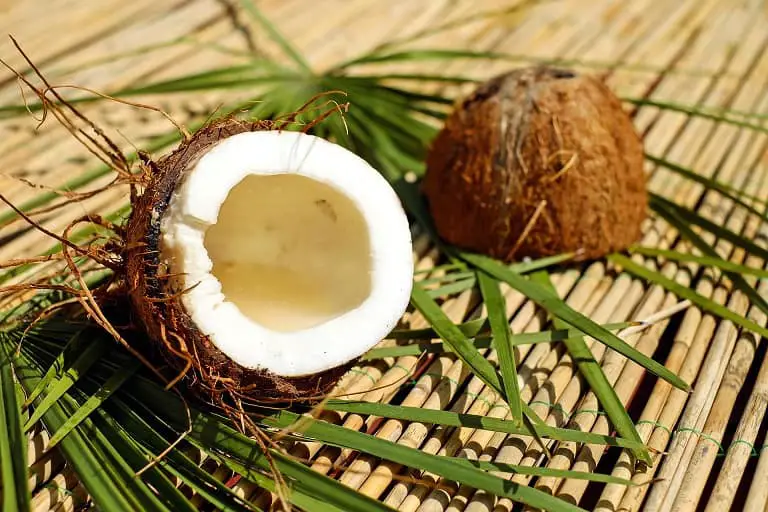
Milk stouts are often brewed and various nuts added to them. Like I said before my most favorite is a peanut butter milks stout. But this can be made better.
By using coconuts alongside the peanut butter you can achieve a sweet less lactose filled milk stout of equal delicious flavors.
Brew with Nuts Like A Pro
The pros typically are experimenting just like homebrewers are so feel free to experiment.
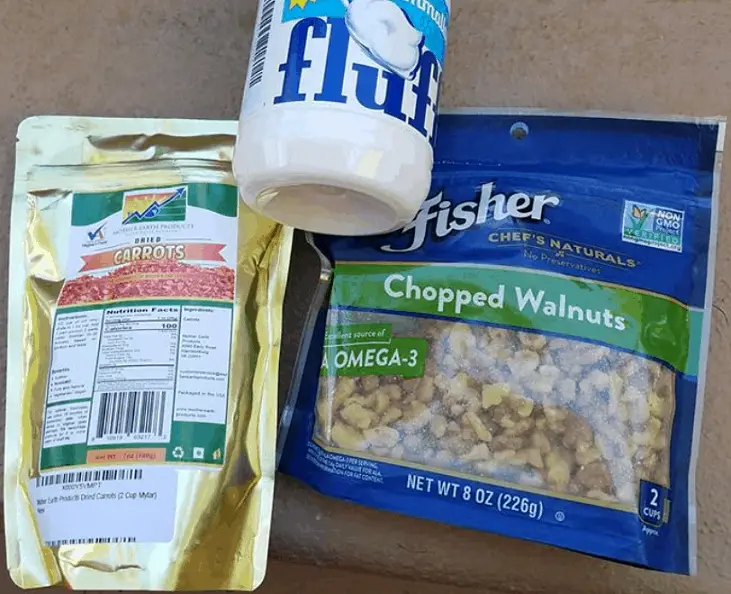
Armed with the do’s and don’ts of brewing with nuts you will be better equipped to make a drinkable brew on your first try. I’ve seen many a YouTube video with failed attempts.
This often comes from either not letting the beer age, poor grain choices, or fatty oil issues. The best way to brew with nuts is to find a recipe that works and adapt it to your preference.
